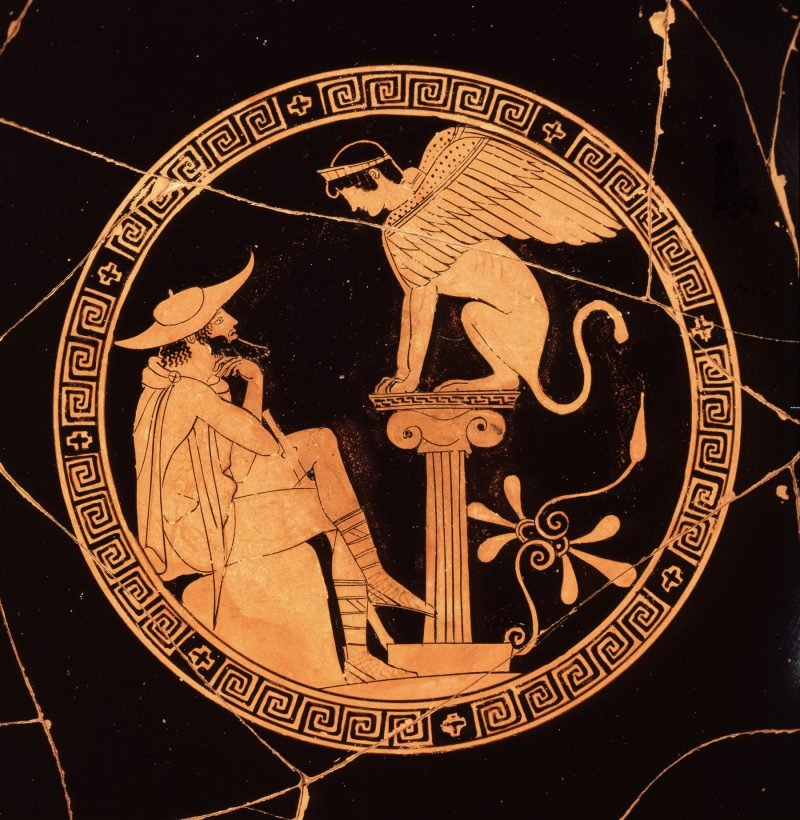Delphi’s timeless call
What do Oedipus, Alexander the Great, and Nero have in common?
Theater at Delphi with its magnificent perch
When you visit Delphi for the first time—or the twentieth—the site’s natural beauty steals your breath, and you appreciate just how much of an aesthete Apollo was to select that particular hillside as the location of his most significant oracle. For centuries people traveled from every corner of the Mediterranean world to Delphi—poor people, rich people, ordinary citizens, and kings as well as emperors. They came primarily not for the place’s stunning beauty but for the opportunity to learn from Apollo, through the Pythia, his sacred priestess, something about what fate had in store for them.
It was to Delphi that Oedipus went to ask if the king and queen of Corinth were his natural parents: he was told that he would kill his father and marry his mother (who, as it turned out, were the king and queen of Thebes; he killed the former when, as he was walking away from the oracle, he slew a belligerent old man in a litter who had, without any provocation, whacked him on the head with a staff; he married the latter when he entered Thebes as a hero, because he had answered the riddle of the Sphinx, and was given the recently widowed queen as his wife).
Oedipus listening to the riddle of the Sphynx of Thebes, Attic Kylix, Vatican Museums
It was to Delphi that Croesus, king of Lydia, sent an embassy to ask if he should make war against the Persians; he was told that, if he did, he would destroy a great kingdom (so he began the war and then destroyed his own great kingdom when he was crushed by the Persians).
Alexander the Great (before he was “Great”) went to Delphi to ask if he would conquer the entire world; he was told, since he had arrived on an inauspicious day, to come back later (but, when he angrily tried to drag the Pythia from the temple, she blurted that he was invincible, which Alexander construed as the answer to his question).
The Roman emperor Nero (before he was emperor) journeyed to Delphi to ask about his future, but the Pythia told him to go away, adding that he should watch out for the number 73 (so Nero went away happy, thinking that, once he became emperor, he would rule until he turned 73 years of age, but the number 73 was the age of Galba, who brought about the ouster and death of Nero, when the infamous emperor was only 30 years old).
When you visit Delphi—whether it’s your first or your twentieth time—and you know about some of the famous individuals who walked its pathways in antiquity, you’re overwhelmed not only by the site’s natural beauty but also by the magical connection you feel with the past. Walk these footsteps with us and answer Delphi’s timeless call.



